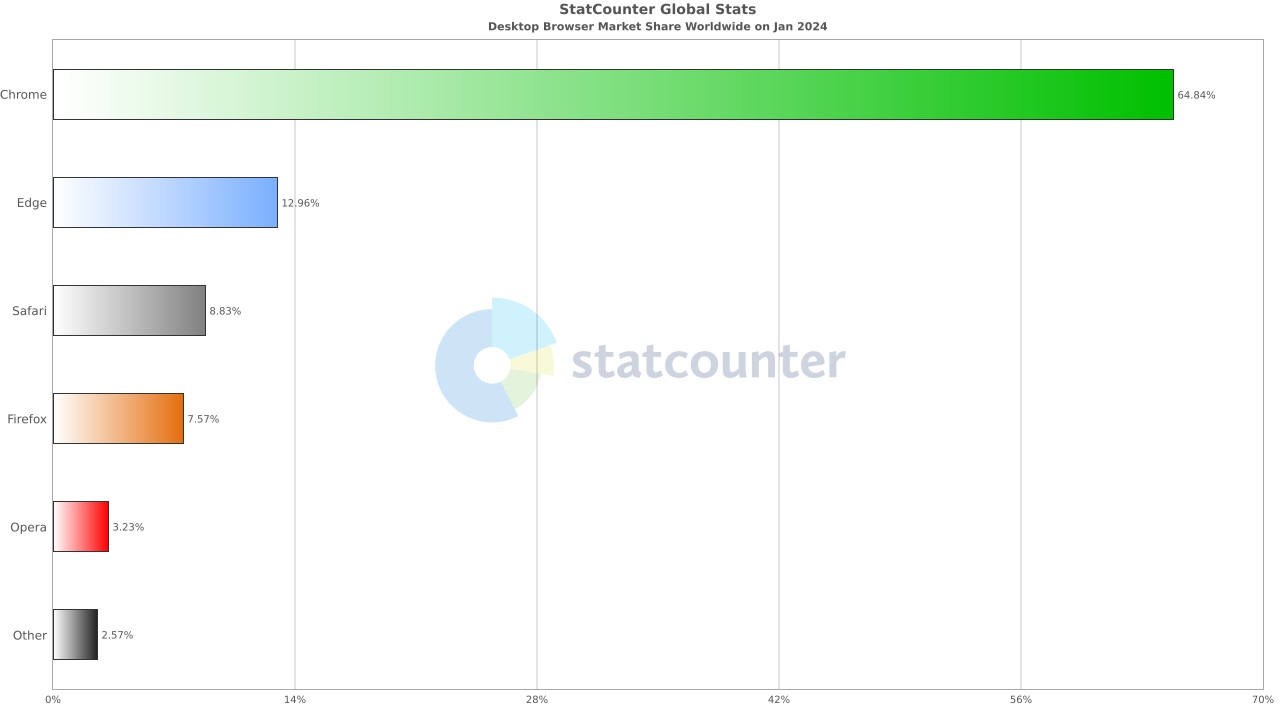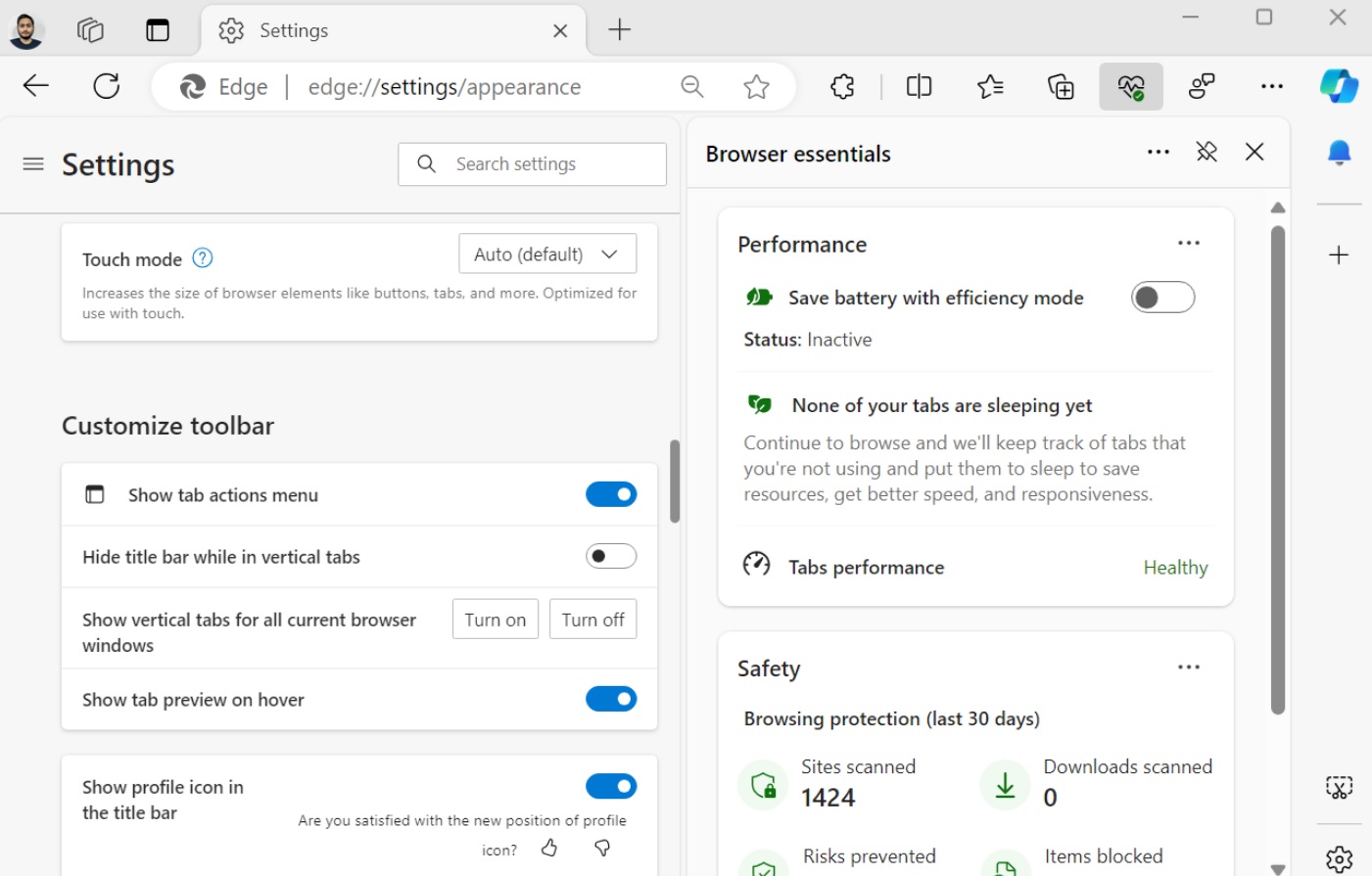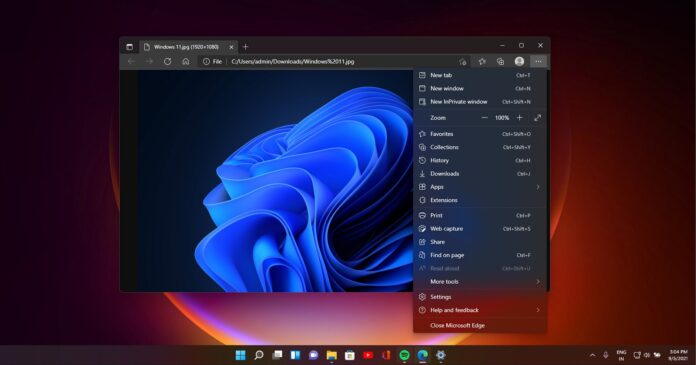Google Chrome continues to be the king of the browser market, but Microsoft Edge isn’t conceding and has gained a substantial lead in the last two months. Its desktop market share rose to 12.96 percent in January 2024 (11.23 percent in November 2023), as per a recent report by StatCounter.
Two months back, in November 2023, Safari was in second place after Chrome. But its grip over desktop consumers took a deep plunge after that, giving more room for Edge to rise in the desktop market. Some of this growth is attributable to the multiple improvements in Edge and the integration of Copilot.
Microsoft Edge’s desktop share is 12.96% of the market, which is a growth of 1.06 percentage points compared to December. Apple’s Safari maintains the third position with an 8.83% share, experiencing a drop of 0.13. Firefox follows closely in fourth place at 7.57%, down by 0.05 points.

Opera rounds out the top five with a 3.23% share, witnessing the most substantial decline of 0.57.
Here’s a breakdown of StatCounter’s January 2024 desktop browser share report:
- Chrome has the largest market share, with 64.84% of users.
- Edge is the second most popular, with 12.96% of the market share.
- Safari has 8.83% of the market share.
- Firefox follows with 7.57%.
- Opera has a smaller share of 3.23%.
- Other browsers collectively make up 2.57% of the market share.
While Microsoft Edge is catching up on desktops, it’s not doing well in the overall market share, which includes mobiles and tablets. According to StatCounter’s all-platforms report, Edge is still stuck at the third spot with a 5.36 percent market share, while Safari hasn’t budged from the second spot with an 18.82 percent market share.
The mobile and tablet market share numbers aren’t impressive, but both show small yet steady growth. The main reason behind this is the massive dominance of Chrome, Safari, and Samsung Internet, which appeal to many Android and iPhone users.
Microsoft Edge is slowly getting better
Thanks to the new features, Microsoft Edge could gain more market share in the coming months.
For Example, Microsoft Edge 121, now available for the Stable channel, added support for AVIF and AV1 file formats to speed up page load time.

Similarly, new alerts about the latest browser updates have been moved to the Browser Essentials section. If you haven’t noticed, the “heart” icon on the Edge toolbar displays Performance and Safety cards.

There’s a new E-tree feature in the Wallet that aims to increase awareness about the environment. Microsoft joined hands with the Eden Reforestation Projects and will plant a tree on your behalf after you collect 10000 points in your wallet. All you need to do is complete daily tasks and achieve the 10000 points.
Here’s a list of all other improvements in Edge 121:
- Microsoft has enabled a new Website Typo Protection policies feature that will alert users when they mistype a popular domain to prevent them from visiting and entering their data on a malicious page.
- Administrators can also add organizational branding using the Entra IDs. They can tweak the logo and add profile names and colors to make the profiles more distinguishable. Apart from this, six new security updates have been introduced with this version.
Edge mobile’s extension support could improve its market share on Android
Additionally, Microsoft is planning to take on Google Chrome on Android with extension support.
As spotted by some users, Edge for Android is testing extension support. You can add popular extensions to block ads, modify page layouts, and customize it like the desktop version. Thus, it will join the small league of mobile browsers that offer extension support.
It’s worth noting the feature hasn’t shipped to the Stable channel, but when it does, it will surely lure some users away from Chrome which has neglected extensions on mobile until now.

